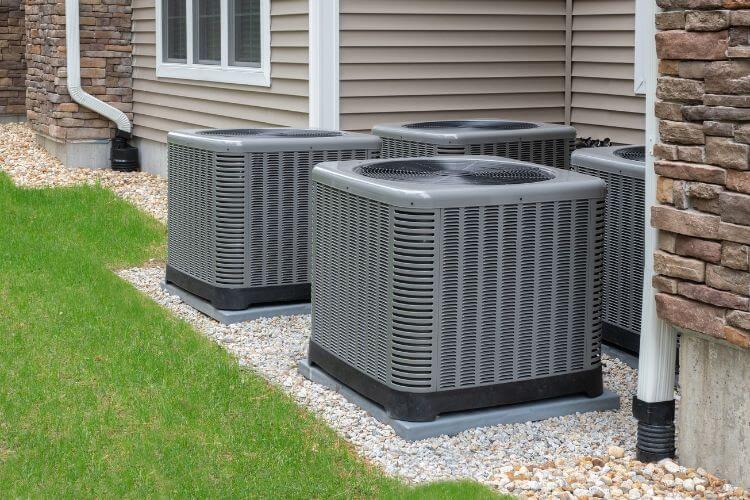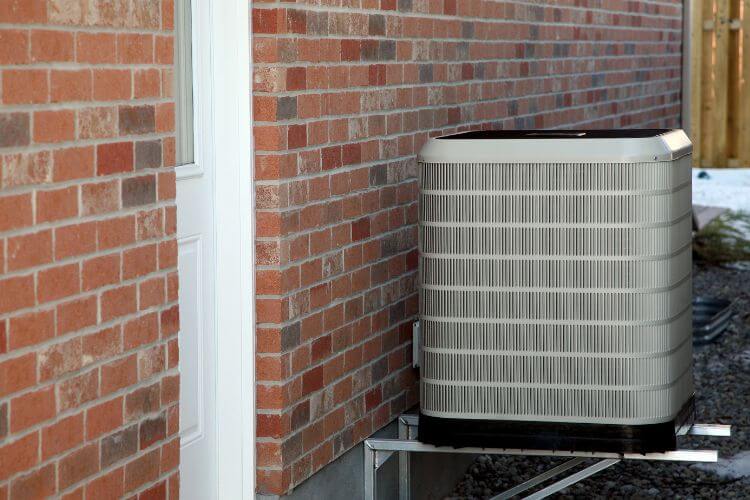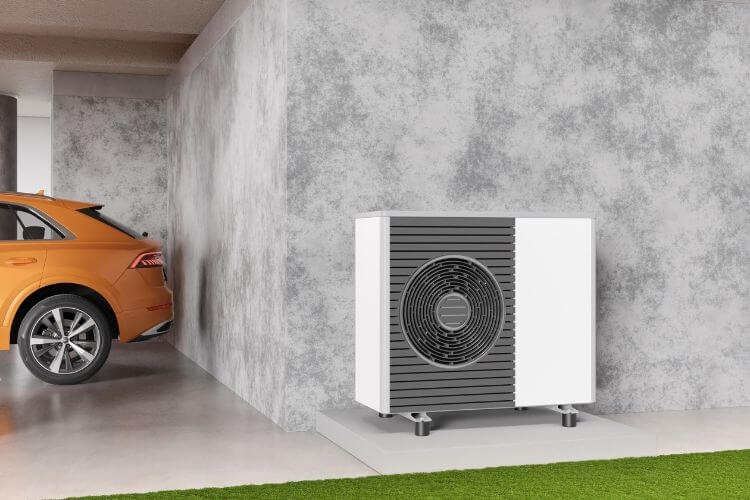
- By greenair-cy
- In Heat Pump
The Benefits of Having an Energy-Efficient Heat Pump in Cyprus
You’re probably aware that having a heat pump in Cyprus is an essential part of your home’s comfort system. What are the benefits of having an energy-efficient heat pump? Let’s talk about what a heat pump is, how it works and why you should have one installed in your home.
What is a heat pump?
Did you know that the first heat pump was built back in 1856 by Peter von Rittinger?
Its main use, back then, was to dry salt in salt marshes. Today, heat pumps are commonly used to move heat from the inside of a building to the outside, but they can also be used in reverse to move heat from the outside to the inside.
In either case, the heat pump uses a compressor to move heat from one location to another.
Heat pumps are an energy-efficient way to regulate the temperature in a house or office, and they can be used in any climate including the Mediterranean climate of Cyprus.
Are you considering installing a heat pump? Contact us for a free quote.
How does a heat pump work?
A heat pump uses a refrigerant to absorb heat from the air or ground outside. The refrigerant is then compressed, which raises its temperature. The hot refrigerant is sent inside, where it releases its heat and warms the air. The refrigerant then returns outside to start the cycle over again.
Thanks to this simple process, heat pumps can provide efficient heating and cool for homes and businesses.
How does a heat pump with a photovoltaic system work?
A heat pump with a photovoltaic system is a type of renewable energy system that uses solar panels to convert sunlight into electricity. The electricity is then used to power the heat pump, which helps to regulate the temperature inside the home. The photovoltaic system helps to offset the cost of running the heat pump by providing free electricity from the sun.
The average solar panel system produces 3-4 kW on a sunny day and much less on cloudy days. On average a heat pump uses 545-4,286 watts on a warm day while they need between 1,000 and 7,500 watts on a cold day.
Having a heat pump operating with a PV system, with over 300 days of sun in Cyprus, and taking advantage of the domestic net metering scheme is a smart investment. Such a heat pump can help you save up to 20-65% on energy bills, depending also on your building’s insulation.

How does an air source heat pump work?
It works by transferring heat from the air outside, and air-source heat pumps can provide a comfortable indoor temperature all year round.
During winter, an air source heat pump extracts heat from the air and transfers it into your home. This process is reversed in the summer months, providing cool air relief on hot days. While traditional heating and cooling systems rely on fossil fuels to generate heat, air-source heat pumps do not use any combustion, making a heat pump a much more environmentally-friendly option.
Air conditioners work in a very similar way when working in cooling mode; although many believe that air conditions produce cold air to cool a space – the actual way air conditions work is by forcing the inside hot air outside a house or office.
The major difference between the two systems is: the way they operate in heating mode since an air conditioner should be connected to a furnace to extract heat.
An air conditioner along with a furnace creates a heating and cooling system to help you get pleasant temperatures throughout the year.
Why should you have an energy-efficient heat pump in Cyprus?
Let’s go over all the benefits of having an energy-efficient heat pump in Cyprus:
- Since they consume as much electricity as needed you will spend less on energy bills.
- Unlike gas heaters, which have an efficiency range of 50% to 95%, premium heat pumps can heat a room at 600% efficiency.
- A heat pump is a green energy production solution that doesn’t harm the environment
- They can be used for both cooling and warming up indoor spaces.
- They enable you to set different temperatures in every room.
- On average, the lifespan of a heat pump is 15 years.
- Their maintenance cost is overall low.
How much does it cost to install a heat pump in Cyprus?
Installing a heat pump in Cyprus costs between €8,500 and €13,000.
The payback period heavily depends on the efficiency of your heat pump, the size and the insulation quality of your house. For example, if your house is spacious and it’s been a long time since you haven’t updated your insulation, the odds are your investment in a new heat pump will not pay back as fast as someone else’s house that’s smaller with updated insulation.
Plus, a normal heat pump’s lifespan is about 15 years; you won’t need to fork out money on a new heat pump any time soon. Regarding its maintenance, a thorough check by a specialist every other year will be sufficient to keep it in excellent condition.

How long does a heat pump installation take?
Typically, a heat pump installation in a house takes about 4-5 hours with the technicians installing both the outside and inside of the unit on either side of the same wall. For more complex projects the process might last up to a day.
The steps of a heat pump installation are:
- Agreeing with the homeowner on the mounting bracket and the spot where the inside unit is going to be placed.
- Drilling a hole in the wall to connect the two units.
- Connecting the two units by passing wires and through the hole
- Installing the inside unit
- Placing and installing the outside unit
- Testing the whole unit if it’s working properly.
Which is better? An electric boiler or a heat pump?
In general, the upfront investment in an electric boiler is lower than the one needed for a heat pump – if a heat pump installation is beyond your budget, opt for an electric boiler. Both electric boilers and heat pumps operate with electricity; considering that the prices of electricity in Cyprus have dramatically gone up (32% in the first 6 months of 2022), it’s wise to install a solar panels system on your house or business to pay less for energy.
This way, you’ll be able to operate your electric boiler or heat pump with energy generated from your PV system.
Which European countries use heat pumps the most?
Norway has the lion’s share in Europe, with 24,675 heat pumps installed for every 100,000 households. This is partially because of the high cost of fossil fuels in Norway, as well as the country’s abundant renewable energy resources including hydropower, wind power and thermal power. Sweden and Finland are also major users of heat pumps, with 19,510 and 18,314 units per 100,000 households respectively while Estonia, Denmark and France have 14,762, 7,549 and 4,586 accordingly.
Are heat pumps common in Europe?
Europe has seen a huge spike in heat pump installations in recent years, with nearly 15 million households using them to stay warm in 2020. European governments have pledged to reduce fossil fuel emissions aiming for 40% of residential buildings to be warmed by heat pumps by 2030.
